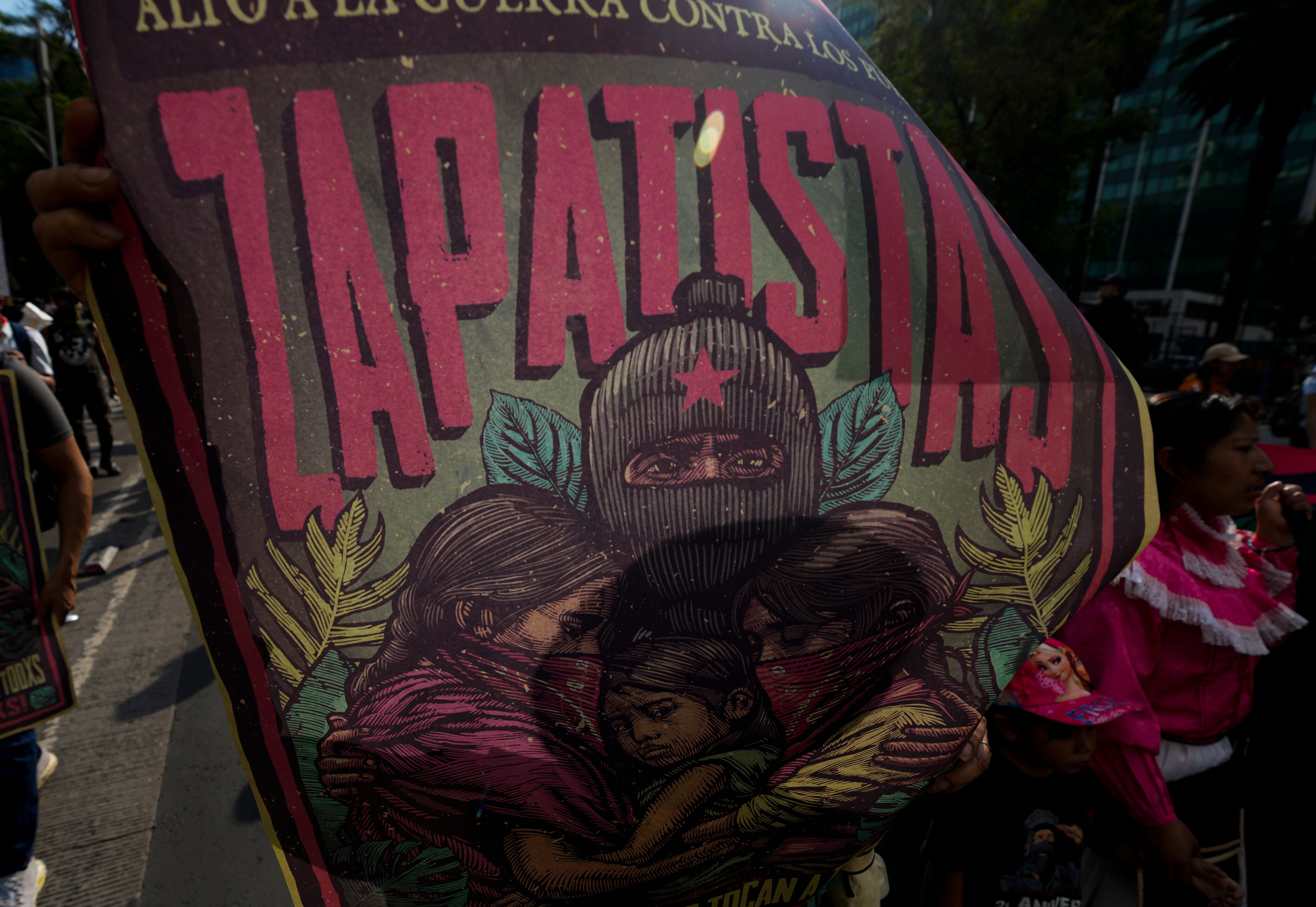Mexico's Zapatista rebel movement says it is dissolving its 'autonomous municipalities'
The Zapatista rebel movement in southern Mexico says it is dissolving the “autonomous municipalities” it declared in the years following the group’s 1994 armed uprising

The Zapatista indigenous rebel movement in southern Mexico said in a statement posted Monday it is dissolving the “autonomous municipalities” it declared in the years following the group's 1994 armed uprising.
The Zapatistas led a brief rebellion to demand greater Indigenous rights, and since then have remained in their “autonomous” townships in the southern state of Chiapas, refusing government aid programs.
In the statement, dated “November” and signed by rebel Subcommander Moises, the group cited waves of gang violence that have hit the area of Chiapas that borders Guatemala, but did not say whether that was a reason for dissolving the townships. The area held by the Zapatistas includes areas near the border.
There is also a possibility the changes may be related to the upcoming 2024 presidential election. The movement has run candidates in the past.
“In upcoming statements, we will describe the reasons and the processes involved in taking this decision,” the statement said. “We will also begin explaining what the new structure of Zapatista autonomy will look like, and how it was arrived at.”
It said Zapatista community centers, known as “Caracoles” (snails), will remain open to locals but be closed to outsiders. They serve as administrative, health care and education centers, but were also the main point of contact between the Zapatistas and the outside world.
The group has been known in the past for issuing cryptic, often poetry-laden statements.
Anthropologist Gaspar Morquecho, who has studied the movement for decades, said the Zapatistas — known as the EZLN, after their initials in Spanish — have become increasingly isolated, leading many young people to move out of the townships in search of work or more formal education opportunities.
“The EZLN has also closed off ties to other groups and organizations, and so they have become isolated,” Morquecho said.
The statement also said the Zapatistas will celebrate the 30th anniversary of their uprising in late December and early January. And though it said Chiapas is no longer safe for residents or outsiders, it invited people to come.
The statement did not say whether the celebrations would be held in San Cristobal de las Casas, the colonial-era city that was briefly taken over by Zapatistas during the 1994 uprising. The southern city is popular with tourists.
In recent years, Chiapas has seen the rise of migrant smuggling, drug cultivation and trafficking, and bloody turf battles between the Sinaloa and Jalisco drug cartels. Those cartels often operate through local gangs or self-styled vigilante groups.
“There are road blockades, robberies, kidnappings, extortion, forced recruitment, shootouts,” said the Zapatista statement, which in line with the movement's ideology linked the violence to Mexico's political parties, the tourism industry and the government.
The Mexican government has sent thousands of soldiers and quasi-military National Guard troopers to Chiapas, but the Zapatistas said they have not had any effect in combatting crime.
“The only reason they are here is to stem migration. That is the order they got from the U.S. government,” the statement read.
Bookmark popover
Removed from bookmarks